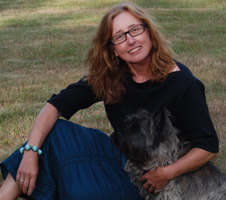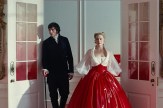3Qs: What makes a good book-to-movie adaptation?

The film adaptation of Suzanne Collins’ “The Hunger Games” dominated the box office this weekend, netting more than $155 million in its first three days in theaters. We asked English professor Kathleen Kelly, who teaches classes that cover book-to-film adaptations and plans to see “The Hunger Games” this week, about what makes a successful movie version of a work of popular literature.
What makes for a successful book to film adaptation?
It’s a combination of genius, inspiration and the nature of the narrative itself, but then these elements also have to be combined with reader — and now viewer — expectations. I don’t think there are general principles to follow except for aiming for the highest production values and the lushest kind of visuals.
A reader’s encounter with a written narrative is completely dependent on the visuals created by the text and his or her imagination. So when descriptions of landscapes, dwellings and people are transferred from that medium — from the written word to the screen — the resulting visuals have the biggest impact. It’s not necessarily the plot or the stars; it’s more that the viewer thinks, “That’s exactly how I pictured it!” Often, the more a reader’s expectations line up with the film, the more successful the film is thought to be.
What film adaptations stand out as especially good or bad interpretations of the written word?
Right away, I have to say that Peter Jackson’s adaptation of “The Lord of the Rings” is one of the best I’ve ever seen. It’s a trilogy I grew up with and loved, as did so many other readers. But Ralph Bakshi’s 1978 adaptation of Tolkien’s trilogy was one of the worst I’ve ever seen. I think so much of its failure had to do with the choice of animation: It made Tolkien’s vivid, deep characters cartoony. Jackson’s characters, on the other hand, projected gravitas and depth that matched the book.
Beyond capturing the landscape of Middle Earth, Jackson lifted dialogue right from the books. There’s a pleasure that comes from knowing the narrative beforehand — there’s no suspense, you know how it’s going to turn out. You’re going for the sheer pleasure of the visual, so then to hear the dialogue that you already know well enhances the pleasure.
Do fans of books set unrealistic goals for movie adaptations?
I think when people start out with a fidelity model — when they want the film to imitate the book — they’re always going to be disappointed. They expect the experience they had reading will be the same they’ll have in the theater. But it’s two different mediums. If you go into the film expecting that everything in the book will be represented on the screen, you’re going to be disappointed.
But sometimes a film can move too far from a book, focusing more on visuals than story. Take the Harry Potter films, especially the later ones: The visuals are so lush and dominating, but all the complexity of the narrative is gone. I think the last two films were extremely disappointing, though they followed the arc of J.K. Rowling’s writing. The story got darker and darker, with a good vs. evil story that became increasingly complex, but that just didn’t transfer to the screen.





